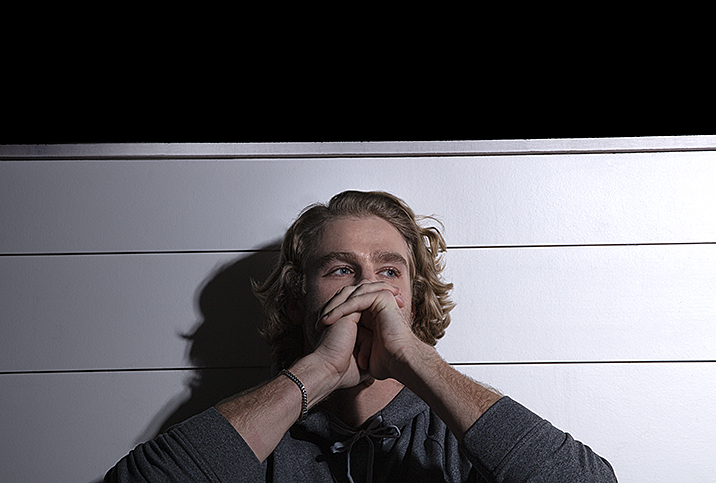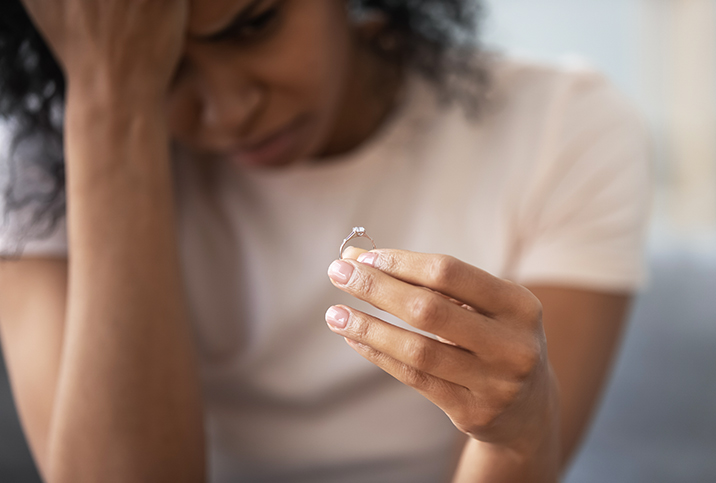How Cheating Starts and How to Stop It

Whether you're married, in a serious relationship or dating casually, romance requires a degree of work from both parties—work that involves discussing problems, compromising and making time for each other.
Up to 40 percent of marriages are impacted by infidelity. But despite unfaithfulness being such a common occurrence, it doesn't necessarily have to happen to you.
"Cheating doesn't come from nowhere," said Kruti Patel, Ph.D., a licensed clinical psychologist in Austin, Texas. "It's usually the result of a low and undetected pathway before the actual physical cheating occurs. Cheating is often due to deficiencies within the relationship that lead to one partner feeling lonely or not valued."
While it's hard to hear that infidelity can start within your own relationship and, worse still, because of something you did or didn't do, there's a grain of reassurance in knowing you can have a role in preventing it from happening in the first place.
Why people cheat
People cheat in relationships for many reasons: falling out of love, commitment issues, unmet needs, unfulfilling sex life or low self-esteem, to name a few. Rarely is there one central cause, but one common theme is differing expectations in a relationship.
"Our expectations are the source of our success as well as our unhappiness in life," explained Alex Dimitriu, M.D., a psychiatrist and sleep medicine expert who founded Menlo Park Psychiatry & Sleep Medicine in California.
This applies to relationships, as well. According to Dimitriu, relationships begin with certain expectations, and if they aren't met, a partner might search elsewhere to fulfill their needs.
Not everyone has this response, he cautioned. The fact that some people cheat and others don't when they're met with differing expectations is what makes human thinking more of a spectrum as opposed to black and white. Whether your partner's expectations are reasonable or their response to your own expectations is appropriate makes up the gray area, Dimitriu said.
Recognizing what your relationship needs
When your or your partner's expectations are unrealistic, that's when you can potentially run into problems.
"Perceptions get unfairly biased when our own personal mood, stress, anxiety, fatigue or burnout enter the picture, and we see the world and our relationship through a distorted view," Dimitriu explained.
Try to focus on what brought you together in the first place or the connection you have with your partner. Consider whether there is anything going on in your relationship that might need to be improved so both parties feel their mutual physical and emotional needs are being met.
According to Patel, it's helpful to look at the relationship from a dynamic perspective and not just your own. Look at what's happening in your communication, your connection to each other and how you get along.
This doesn't mean you are to blame if your partner cheats. In fact, if your partner cheats, it's still on them to take responsibility for what they did, Patel said.
"If we turn toward the importance of communication in a happy couple, cheating is certainly not an effective means of communicating," Dimitriu said. "While the needs of the cheater may not be met, the process of cheating is certainly not a fair path towards a solution."
What if you're just friends and lovers?
If you're not married or in a longstanding committed relationship—maybe you and your partner are simply lovers and friends in a casual relationship—you might think infidelity is easier to accept. But Patel said it's still likely to be difficult regardless of your relationship.
"It's a betrayal, and when our feelings are hurt, [that can be] painful," she added.
Of course, more feelings might be involved if you're in a marriage or long-term relationship. Expectations are key, Dimitriu explained, and in some cases, cheating might not be a surprise in an unhappy marriage of 20 years.
If you're casually dating, it's a good idea to have a conversation about exactly what "casual" means. Discuss each other's rules and expectations about being with other people outside the relationship; determine whether both of you are accepting of intimacy with other people. Good communication can even clear up a situation that constitutes cheating, Dimitriu noted.
If you need additional support
Some couples may find they need the support of an unbiased third party to get on the same page in their relationship. Talking to a couples therapist can be beneficial in addressing some tougher issues and helping you avoid hurt down the road.
It's important not to feel like you're failing if you need to talk about your relationship struggles with a therapist. If anything, you're taking steps to strengthen your bond with your partner and enrich your relationship.


















